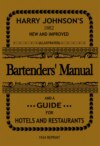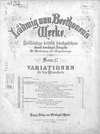Читать книгу: «Bartenders' Manual», страница 2
INDEX.
______
RULES AND REGULATIONS.
FROM 1 TO 56.
1. How to attend a bar
2. How a Bartender may obtain a Situation
3. The Mutual Relations of Employer and Employee
4. Rules for Bartenders in entering on and going off duty
5. First Duty in opening a Bar-room in the morning
6. Why Bartenders should have their own Union for Protection and Association
7. Getting your Money when busy or in a rush
8. Hints about training a Boy to the business
9. Treatment of Patrons – Behaviour towards them
10. How to improve the appearance of Bar and Toilet-Rooms
11. To know how a customer desires his drink to be mixed
12. Hints from the Author
13. The Opening of a New Place
14. Having a complete Price-List
15. To keep Ants and other insects out of mixing bottles
16. Handling of Champagnes and other wines
17. Cleaning Silverware, Mirrors, etc.
18. How Corks should be drawn from wine bottles
19. Glassware for Strained Drinks
20. The Ice Box in your Basement or Cellar
21. How to handle properly Liquors in casks or bottles
22. A few remarks about Case Goods
23. A Tip to the Beginner – How to make money
24. Keeping Books in a simple manner
25. A Restaurant in connection with a Café
26. In connection with the Check System
27. Concerning the High-Proof of Liquors, Whiskies, Brandies, etc.
28. Some remarks about Mortgages
29. A few remarks about Cashing Checks
30. Rules in reference to a “Jigger”
31. A few words regarding Lager Beer
32. How Lager Beer should be drawn and served
33. About bottled Lager Beer
34. About Cleaning Beer and Ale pipes
35. Relating to Punch Bowls
36. The proper style in opening and serving Champagnes
37. Purchasing Supplies
38. Handing Bar-Spoons to Customers
39. How to keep Cellar and Store-Room
40. How to Clean Brass and other Metals
41. Keeping of Glassware
42. How to handle Ice
43. The purchase of an old Place
44. The opening of Mineral Waters
45. How Drinks should be served at tables
46. How Claret Wines should be handled
47. Treatment of Mineral Waters
48. In reference to Free Lunch
49. How to handle Ale and Porter in casks
50. Cordials, Bitters and Syrups
51. How Ale and Porter should be drawn
52. Decorating Drinks with Fruit
53. How to handle Fruits, Eggs and Milk
54. Covering Bar Fixtures with Gauze in the summer
55. Cigars sold at the bar and elsewhere
56. Last but not Least
LIST OF UTENSILS, WINES, LIQUORS AND PRINCIPAL STOCK OF RESTAURANT AND CAFÉ.
FROM 57 TO 70.
57. Complete List of Utensils, etc. used in a Bar Room
58. List of Glassware required in a Bar Room or Café
59. List of different Liquors that are required in a Bar Room
60. List of principal Wines
61. List of principal Cordials
62. List of Ales and Porter
63. List of the principal Mineral Waters
64. List of principal Syrups
65. List of principal Bitters
66. List of the principal Fruits used in a Café
67. List of principal Mixtures
68. Sundries
69. The principal Stock of a Restaurant
70. The principal Stock of a Café
LIST OF MIXED DRINKS.
FROM 71 TO 337.
A
Absinthe Cocktail
American Style of Mixing Absinthe
Apple Jack Sour
Ale Sangaree
Arf and Arf
Absinthe Frappé
Apple Jack Cocktail
Apollinaris Lemonade
April Shower
American Glory
B
Brandy Crusta
Brandy Shamparelle
Brandy Punch
Baltimore Egg Nogg
Brandy Fix
Brandy Flip
Bowl of Egg-Nogg for a New Year’s Party
Brandy Scaffa
Beef Tea
Brandy Daisy
Blue Blazer
Bishop
Brandy Fizz
Burnt Brandy and Peach
Brandy and Soda
Brandy Straight
Brandy and Ginger Ale
Black Stripe
Brandy Shrub
Brandy and Gum
Bombay Punch
Bottle of Cocktails for Parties
Brandy Sangaree
Balaklava Nectar
Bottled Velvet
Bishop à la Prusse
Brandy and Mint
Brandy Split
Brandy Smash
Brandy Julep
Bijou Cocktail
Brazil Cocktail
Black Thorn
Bradford à la Martini
C
Champagne Cocktail
Curaçao Punch
Champagne Julep
Champagne Cobbler
Champagne Sour
Claret Punch
Claret and Champagne Cup à la Brunow
Champagne Velvet
Claret Cobbler
Columbia Skin
Claret Cup for a Party
Crimean Cup à la Marmora
Cold Brandy Toddy
California Sherry Wine Cobbler
Cold Ruby Punch
Currant Shrub
Cold Whiskey Sling
Coffee Cocktail
Cincinnati Cocktail
Chocolate Cocktail
Champagne Cup
Claret Flip
Champagne Punch
Coffee Cobbler
Champagne Frappé
Crème de Menthe
Col. Brown Punch
Claret Lemonade
D
Duke of Norfolk Punch for Bottling
Duke of Norfolk Punch
E
Egg Nogg
East India Cocktail
Empire Punch
Egg Lemonade
Egg Milk Punch
English Bishop
English Royal Punch
English Curaçao
Egg Sour
Eye Opener
F
Fancy Whiskey Smash
Fancy Brandy Cocktail
Faivre’s Pousse Café
Fancy Brandy Smash
Fine Lemonade for Parties
Fancy Brandy Sour
Fedora
G
Golden Slipper
German or Swiss Style of Mixing Absinthe
Golden Fizz
Gin Fizz
General Harrison Egg Nogg
Gin and Calamus
Gin and Milk
Gin and Wormwood
Gin Fix
Gin and Tansy
Gin Julep
Gin Cocktail
Gin Smash
Gin Toddy
Gin and Molasses
Gin Sour
Gin Rickey
Gin Daisy
Golden Thistle
H
How to Mix Absinthe
How to Mix Tom and Jerry
How to Deal out Tom and Jerry
Hot Spiced Rum
Hot Apple Toddy
Hot Lemonade
How to Serve a Pony Glass of Brandy
Hot Gin Sling
Hot Arrac Punch
Hot Scotch Whiskey Sling
Hot Milk Punch
Hot Whiskey
Hot Locomotive
Hot Irish Whiskey Punch
Hot Rum
Hot Brandy Sling
Hot Egg Nogg
Hot Brandy Punch
Hot Scotch Whiskey Punch
Highball
Hot English Rum Punch
Horse’s Neck
High Life
I
Italian Style of Mixing Absinthe
Imperial Brandy Punch
Irish Cocktail
Imperial Cocktail
J
Japanese Cocktail
John Collins
Jersey Cocktail
Jamaica Rum Sour
K
Knickerbocker
Knickerbein
Kirschwasser Punch
Klondyke Cocktail
L
Lemonade
Little Egypt
M
Mint Julep
Morning Glory Fizz
Manhattan Cocktail
Martini Cocktail
Mississippi Punch
Milk Punch
Medford Rum Sour
May Wine Punch
Mulled Claret and Egg
Milk and Selters
Medford Rum Smash
Medford Rum Punch
Morning Cocktail
Maraschino Punch
Montana Cocktail
Marguerite Cocktail
Maiden’s Dream
Morning Daisy
O
Old Style Whiskey Smash
Orange Lemonade
Orgeat Lemonade
Orchard Punch
Old Tom Gin Cocktail
Orange Punch
Old Fashioned Whiskey Cocktail
Old Style American Punch
Oyster Cocktail
Olivette Cocktail
P
Pousse Café
Pousse L’Amour
Port Wine Punch
Prussian Grandeur Punch
Porter Sangaree
Punch à la Ford
Port Wine Flip
Port Wine Sangaree
Port Wine Cobbler
Peach and Honey
Punch à la Dwyer
Philippine Punch
Punch à la Romaine
Porter Cup for a Party
Parisian Pousse Café
Port Wine Lemonade
R
Roman Punch
Rhine Wine Cobbler
Rhine Wine and Selters
Raspberry Shrub
Rochester Punch
Rock and Rye
Remsen Cooler
Russian Punch
Reform Cocktail
S
Silver Fizz
Sherry Cobbler
Sherry Flip
St. Charles Punch
Selters Lemonade
Sauterne Cobbler
Santinas Pousse Café
Sherry Wine Punch
Saratoga Cocktail
Sherry and Egg
St. Croix Crusta
Soda Cocktail
St. Croix Rum Punch
Soda Lemonade
St. Croix Fix
Soldiers’ Camping Punch
Saratoga Brace Up
Sherry Wine and Ice
Shandy Gaff
Sherry Wine Egg Nogg
Sherry Wine and Bitters
Stone Wall
Stone Fence
Sherry Wine Sangaree
Soda and Nectar
Soda Negus
St. Croix Sour
Sherry Cocktail
Snow Ball
Saratoga Cooler
Star Cocktail
Silver Cocktail
St. Joseph Cocktail
T
Toledo Punch
Tip-Top Punch
Tom Collins
The Old Delaware Fishing Punch
The American Champagne Cup
Tom and Jerry (cold)
Trilby Cocktail
Tea Punch for the Winter
Tea Cobbler
Turkish Sherbet
Thorn Cocktail
Tenderloin Reviver
Tuxedo Cocktail
Turf Cocktail
V
Vanilla Punch
Vermouth Cocktail
Virgin Strawberry Ice Cream
W
Whiskey Daisy
Whiskey Rickey
White Lion
Whiskey Crusta
Whiskey Julep
Whiskey Cocktail
Whiskey Sour
Whiskey Cobbler
Whiskey and Cider
Whiskey Fizz
Whiskey Fix
Wine Lemonade
White Plush
Wedding Punch for a Party
Whiskey Smash
Widow’s Kiss
Wines with a Formal Dinner
1. HOW TO ATTEND A BAR.
The General Appearance of the Bartender, and How He Should Conduct Himself at All Times When on Duty.
The author of this work has, after careful deliberation, compiled the following rules for the management of a saloon, and would suggest the advisability of following these instructions while attending a bar. He has endeavored to the best of his ability to state them in perfectly plain and straightforward language, as the work must be conducted in the same systematic and proper manner as any other business. When waiting on customers, at any time, it is of the highest importance for a bartender to be strictly polite and attentive in his behavior and, especially, in his manner of speech, giving prompt answers to all questions as far as lies in his power; he should be cheerful and have a bright countenance. It is absolutely necessary to be neat, clean, and tidy in dress, as that will be more to the interest of the bartender than any other matter. He should be pleasant and cheerful with every one, as that will not only be gratifying to customers, but also prove advantageous to the bartender serving them.
It is proper, when a person steps up to the bar, for a bartender to set before him a glass of ice-water, and then, in a courteous manner, find out what he may desire. If mixed drinks should be called for, it is the bartender’s duty to mix and prepare them above the counter and allow the customers to see the operation; they should be prepared in such a neat, quick and scientific way as to draw attention. It is also the bartender’s duty to see that everything used with the drinks is perfectly clean and that the glasses are bright and polished.
When the customer has finished and left the bar, the bartender should clean the counter well and thoroughly, so that it will have a good, renewed appearance, and, if time allows the bartender to do so, he should clean, in a perfect manner, at once, the glasses that have been used, so as to have them ready again when needed. Regarding the bench which is an important feature in managing a bar properly, it is the bartender’s special duty to have it cleared up and in good shape, at all times, for it will always be to his advantage if done correctly (see illustration, plate No. 2.).
Other particular points are the style of serving and the saving of time. Whenever you have to mix drinks which require straining into a separate fancy glass, such as cocktails, sours, fizzes, etc., make it a rule to place the glass of ice-water in front of the customer, next to it the glass into which you intend to strain the drink, and then go to work an mix the drink required; try to place your glassware on the counter all in one row or straight line. As to the personal style of the bartender, he should stand straight, carry his head erect and place himself in a fine position (see illustrations, plates Nos. 1 and 3.).
___________
2. HOW A BARTENDER MAY OBTAIN A SITUATION.
When a bartender is looking for a position or an opening, it is of great importance for him to present a neat, clean appearance. It is also proper for him, as soon as he approaches the proprietor, to be careful in his speech and expressions, not say too much, but wait until the prospective employer asks him questions to which he should reply promptly. Have good recommendations with you, if possible, or, at least, be able to prove by references that you are reliable and capable. In entering an office or restaurant, it is proper to take off your hat and, especially, while talking to the proprietor – a much-neglected act of courtesy. Many people believe that they lower themselves by lifting their hats, but this is a mistaken opinion, as it is only a matter of etiquette and shows proper respect. When the proprietor is a gentleman, you will find he will do the same, even before you have; perhaps, to show that he has the proper knowledge of what etiquette demands.
A bartender inquiring for a position should be clean-shaven, with clothes well-brushed and shoes blacked; and should not speak to the proprietor with a cigar in his mouth and neither should he spit on the floor, be chewing a toothpick, use slang or profane language or indulge in other bad habits. All his answers should be short and in a polite tone of language.
When the question of wages is introduced, you must know yourself what you are worth and every good bartender should demand good wages. Of course, it’s much better to demand the proper salary, at once, than to accept small wages at the beginning and then attempt to have it increased later, as this method generally creates an ill-feeling between employer and employee, especially if the desired “raise” is refused. It is advisable for the bartender to ask the proprietor or manager, in a gentlemanly manner, what hours he is to work, whether by day or night, whether entitled to meals or not, what privileges are to be given him, what is demanded of him and obtain information of all the particular rules and regulation governing the place of business. If everything is satisfactory to both and you have been engaged, at once leave the place, in a proper manner and do not linger about, trying to occupy the proprietor’s time more than necessary and not give the bartender, who is going to leave or to be discharged, an opportunity to know what the business talk has been, or stop and chat to any possible acquaintance, who may be present, about what you are going to do.
I try to impress on every bartender’s mind that he should study his business as much as possible, in every way, so that he be entitled to the highest salary paid; for I do not believe in cheap bartenders. It is much better for the proprietor to pay high wages to those fully understanding their business than to hire “shoemakers” who have but little if any knowledge of the business. Cheap men, as a rule, are worthless.
___________
3. THE MUTUAL RELATIONS OF EMPLOYER AND EMPLOYEE.
It is important that the proprietor of a hotel, restaurant or saloon should try his best to get good help, the best to be obtained in his line of business, for the reason that the more skilled assistance he has in his employ, the easier it is to conduct the business, and the more successful he will be. After having secured a good set of employees, it is the proprietor’s duty to pay them well, every one according to his position; treat them all with politeness and set a g good example by his own manner for them. For example: - When the proprietor enters his place of business in the morning, or at any other time, he should salute his people properly by bidding them the time of day, saluting with a pleasant nod and create a genial feeling among them all by approaching and speaking to some one or more of them, calling them by name, as he may address them casually or on business. By doing this, he will create good feeling between the help and himself and even in his absence his employees will do their work correctly and promptly. But, otherwise, by not treating them kindly, it cannot be expected that the help will take any particular interest in the business or do more than is absolutely necessary to retain their situations. This indifference will naturally be detrimental to the business of the place. It is plainly apparent that when the help are not treated right, the proprietor acting harshly or with an overbearing manner, never having a “good word” for anyone, lacking the commonest politeness of even saying “good morning!” he will fail to make a success; for his employees, instead of caring for his interests, will be antagonistic to him, caring little whether his business runs down or not. The fact is, that employers and employees, should be in harmony with one another, in every direction, the proprietor looking upon his help as friends, regarding them with a family feeling, while they should have the proper respect for him as an authorized boss, but with no fear and, certainly, with no idea of treating him familiarly.
It is a sensible idea for the proprietor, from time to time, when doing a very successful business, to give his employees a little inducement in the shape of a raise of wages, proportionate to their different positions. This will cause them to strive more earnestly to benefit the business, and thereby benefit themselves. It is well also to be prompt in letting the employees go at the hour designated and not detain them unless they are to be paid extra. The employees, too, are to be just as precise in going to work at the exact minute specified. There should be a perfect system of working hours, the time of which is not to be disregarded by either party. If the proprietor is particularly successful and making plenty of money, it is advisable to give also an occasional extra holiday, in proper proportion, providing the help is worthy of it from long and earnest service, or, if possible, in the summer season, to let the employees have, at different times, a brief vacation, though this is naturally a difficult matter in our line of business.
When the proprietor sees the time is fit to reward anyone of the employees, to tender an extra present to some particular one, he should, if financially able, privately put a five or ten-dollar bill in the man’s hands without any comment, and without letting others see the action. There should not be any self-praise – such an action brings its own reward – and, in this case, it is not well to let the left hand know what the right hand is doing. By such means, you will keep your good, faithful people with you and be sure they are working to the best of their ability. Where the proprietor is not in the position of being able to reward financially his employees, a pleasant look, cheery words, and friendly actions will go far with those who can appreciate and take, to some extent, at least, the place of a money gift. If the proprietor is successful, he should not display a pride of his own rise and imagine it’s all the result of his own brilliant mind, claiming entire credit for his financial progress, but acknowledge his indebtedness to his help, for without their assistance he would not have made such rapid advance on the ladder of success. Give encouragement to your help, but do not let them understand that it is by their efforts alone your business has prospered; for, if you flatter them too much, you can easily spoil the best of men in your employ. Never be bombastic or domineering, at any rate. It is very vulgar to be purse-proud. It is wise, under certain circumstances, to supply your help with meals and, when it is practicable, it should be seen that the employees have good, substantial food, well cooked and properly served and not have refuse or “leavings” given them, caring little when and how they get it. It is not necessary to furnish them with delicacies and luxuries, but food that will keep one in strength and proper physical condition, to the lowest as well as to the highest assistant in your employ. It is wise for the proprietor or manager to state the regulations of the house when hiring the help, insisting that they should be clean, energetic, sober, drink only a certain amount at meal time or between meals, as standard rules are more beneficial in their results and will retain people much longer in their situations than where there are no regulations and everyone is allowed to do more or less, as they please. After all the facts mentioned and noting suggestions offered, it will be found that they will give satisfaction to both, the one hiring and to those who hire out. The proprietor is to remember that here the golden rule, “Do unto others, as you wish them to do to you”, is of paramount importance.
In a large concern, where much help is employed, make it a rule that what are known as “officers” (the bartenders, cashier, assistant cashier, manager, headwaiter, etc.) are to be allowed to order from the bill of fare (where there is a restaurant attached) when they eat and specify in your rules a certain amount they are entitled to order in value, perhaps from 40 to 60 cents in price. When this is not done, many employees will ruin their stomachs and, consequently, their health by over-feeding and also create a bad feeling among themselves as well as with the other help, by taking special delicacies; the result being that the proprietor is ultimately forced to make the rule he should have had at first and thus makes it very unpleasant for all the employees.
It is absolutely necessary for the proprietor to protect his people from insults or wrongful accusations by the customers. It is often the case when a patron is a little intoxicated, he may think he has the privilege of calling the employees any sort of a name, but it is then the proprietor’s duty to step in and call the man to order. If the waiter is accused of wrong-doing, it is the proprietor’s place to ascertain which one of the two is in error, and if he finds out the employee is in the right, he must defend and support him, at any risk, careless of what the results may be to himself. It is also the proprietor’s or manager’s duty to see that the “officers” eat properly, conduct themselves quietly, especially if in the public dining-room, so the guests will not be annoyed by any exhibition of bad or vulgar table manners. The boss should look after these matters with the same care he would supervise the control of his own family.
It is not the intention of declaring absolutely that any and every proprietor should do as I have written, but, naturally, use his own judgment in connection with these suggestions.
__________










